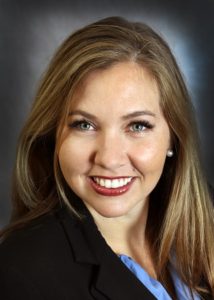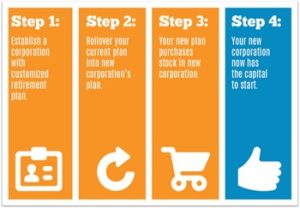
GABB Class April 26: Pricing a Business

Erin Crawford, MBA, CBA
Learn the basics of pricing a business from an industry expert and earn credits towards a Georgia Real Estate license at the April 26 class offered by the GABB.
The Pricing a Business class will be offered online only via Zoom on Tuesday, April 26, from 1-4 p.m.
This class is designed to help someone who is new to the profession of buying and selling businesses with how to identify key components of setting an asking price for a business for sale, how to conduct industry research, where to find and how to use comps, and exploring two approaches to pricing a business, one based on income, and another based on assets.
The class will be taught by Erin Crawford, MBA, CBA, a Business Broker & Certified Business Intermediary with Transworld Business Advisors. Ms. Crawford has helped more than 300 entrepreneurs with achieving their dreams of business ownership. She excels in marketing and business development. She currently helps business owners in Florida’s Palm Beach and Broward counties to locate buyers, both local and international. Further, she consults with buyers to find the right opportunity, whether an existing business or franchise opportunity. As a Certified Business Intermediary, she is a professional in her domain. Ms. Crawford earned her bachelor’s degree in marketing and management from Florida Atlantic University, then earned her MBA from the University of Florida in 2009. A Florida native, she enjoys spending time with her family and serving the community in various philanthropic activities.
Ms. Crawford will join the class virtually via Zoom, and therefore the class will be offered online only.
Students who attend the entire class on April 26 and who successfully complete the online portion of the class will be eligible for continuing education credit from the Georgia Real Estate Commission through the GABB Real Estate School, GREC #8074, Course #74113. All students who complete the entire class online will be eligible for credit toward the Board-Certified Broker designation to be awarded by the Georgia Association of Business Brokers.
The class costs $49 for current GABB members and $75 for non-members. Anyone who wishes to earn the BCB designation, a special Georgia certification for business brokers, must be a GABB member and register for $225 which includes registration and one class.
If you have additional questions about the class, the GABB Real Estate School, or anything else related to GABB classes, please contact Diane Loupe at diane.loupe@gabb.org or 404-374-3990. All general questions about the GABB or membership in the GABB should be directed to Courtney Foley at courtney.foley@gabb.org or 770-744-3639.
GABB BCBB Classes
Form for GABB BCBB Classes
"*" indicates required fields

Business Valuation: GABB BCB Class Oct 19, 2021
Learn basic approaches to business valuation, including how COVID may have impacted what a business is worth and tax strategies for maximum profits in this three-hour class offered by the Georgia Association of Business Brokers. The class will be held from 10 a.m. until 1 p.m. on Tuesday, Oct. 19, 2021 at the Georgia Association of Realtors classroom and also available online. Registration is now closed. Students who successfully complete the GABB class will earn credits towards the Board-Certified Broker designation, the first Georgia-specific certification for business brokers. To earn the BCB, business brokers must be members of the GABB and complete 45 hours of coursework. During this extraordinary time in our nation’s economy, the GABB feels that an excellent use of time would be to strengthen the skills professionals need to represent clients fairly, ethically and responsibly. The class (GREC #73547) also offered three hours of continuing education credit towards renewing a Georgia real estate license through the Georgia Real Estate Commission and the GABB’s Real Estate School (GREC #8074). The class will be taught by Jeff Forrestall, CPA, CFF, ABV, PFS, Managing Partner of Forrestall CPAS and Ricky Moore, CPA, PFS, ABV, QKA, MBA, the Manager of Advisory Services at Forrestall CPAs. Both instructors have experience in tax and financial planning and business valuation. Topics to be covered in this three-hour class include:
- Reconciling Valuation Approaches – Why sellers like the market approach and buyers like the income approach
- COVID Updates: How COVID can affect entity value
- Evaluating and Reducing company-specific risk
- How to increase after-tax proceeds at the exit point
- Ethical issues affecting business valuations
If you want to attend via Zoom, and you have not received an email with information about how to join, contact GABB School Director Diane Loupe at diane.loupe@gabb.org or text her at 404-374-3990 for more information. INSTRUCTORS:

Jeff Forrestall, CPA, CFF, ABV, PFS – Managing Partner of Forrestall CPAs.

Ricky Moore, CPA, PFS, ABV, QKA, MBA is the Manager of Advisory Services at Forrestall CPAs.
Using Retirement Funds to Buy a Business, May 25 GABB Meeting

Larry Carnell, ABI, CBI, CFB, CFE, Vice President of Business Development with Benetrends Financial
Gathering enough cash for a down payment for an SBA loan to buy a business or other business needs can be a challenge. Larry Carnell, ABI, CBI, CFB, CFE, Vice President of Business Development with Benetrends Financial, spoke to the Georgia Association of Business Brokers about how entrepreneurs can use their 401(k), IRA or other qualified retirement account to acquire capital to get approval for an SBA Loan to purchase a business. He also talked about an instant buyer engagement program on how to use cash or retirement funds to help exempt buyers from future capital gain taxes (and proposed increases) and potentially double net inheritance for spouse/children/family.
View a video of the entire meeting on the GABB YouTube channel.
Larry Carnell is a national award- winning entrepreneur and management consultant, as well as a respected business and funding expert at Benetrends. Carnell’s company has programs that allow investors to use part or all of their existing retirement accounts to fund a required down payment for an SBA Loan.
By using long-standing provisions of the Employee Retirement Income Security Act of 1974 (ERISA), Carnell’s company uses a corporate capitalization strategy that enables 100% of the gain on the sale of the company to be tax free. To use this strategy, the business owner rolls over a portion of the funds from a qualified plan or IRA to start a business. When it’s time to sell the business, you may be able to pay no Federal and State tax on any gain from the sale of the business. Up to 100% of the gain can be invested to gro w tax-free, including making an investment in another business, according to Carnell.
w tax-free, including making an investment in another business, according to Carnell.
Carnell also discussed Rollovers as Business Startups or ROBS plan, first introduced by Benetrends Financial as The Rainmaker Plan® in 1983. A ROBS plan is a debt- free funding solution that allows a person to draw from their retirement funds without incurring upfront taxes or early withdrawal penalties. A ROBS plan allows business owners to use their retirement funds, tax-deferred and penalty-free, for the purchase or startup of their business, using a four-step process. He also discussed a Roth Advantage Plan, or RAP.
Advantages of ROBS and RAP plans and similar strategies, according to Carnell, include:
- Increases client engagement (including spouse)
- Superior wealth accumulation & protection (retirement assets cannot be seized by creditors)
- Superior tax benefits (capital gain, income and payroll taxes on retirement contributions)
- Reduces debt and interest payments, Improves cash flow
- Investment NOT a loan – NOT subject to credit rating
- Does NOT adversely impact debt ratios or credit scores
- NOT subject to business profitability
- SBA approved as down payment / equity injection OR used alone
- Improves loan approval rates
- Improves debt ratios Debt free money (SBA approved)
- Improves post close liquidity
- Can be used to leverage BIGGER deal – (Business AND Land) & Broker Fees
- IMPROVES CLOSE RATE
Traditional ROBS features:
- PRETAX use of retirement funds to invest or purchase company stock
- C CORP retirement plan adoption [401(k), hybrid or custom options]
- Retirement Plan BUYS common stock in company
- Company GROWS. Revenues are used to run business. From Profits:
- 401(k) contributions are made NET of payroll taxes (currently 15.3% and rising)
- Rainmaker retirement contributions are EXEMPT from payroll taxes
- Company is SOLD – ‘pretax’ proceeds go into retirement plan
- Proceeds are taxed in the future at future tax rates (expected to rise)
Benetrends offers a NEW Rainmaker/Roth Advantage Plan:
This plan allows business owners to realize the full appreciation of their business tax-free upon the sale of the business, given certain circumstances following the Tax Reduction and Job Creation Act of 2018 (TRJC).
- Cash (minimum of $10k) OR Retirement Funds to invest in company stock
- C CORP creates & adopts 2 CUSTOM retirement plans
- Rainmaker [not a traditional 401(k)] & Rainmaker Roth 401(k)
- Use custom plans to create structure that invests money POST-TAX to BUY common & preferred stock (Taxes due NEXT Year OR 5 year option)
- Company GROWS. Revenues are used for operating expenses
- Retirement contributions are often payroll tax EXEMPT (currently 15.3% and RISING)
- Company SOLD – proceeds forever TAX-FREE & Lifetime protection (no RMDs)
Lenders are finding that these resources are creating enhanced motivation for business ownership, according to Carnell. The perceived security of a job often discourages people from assuming the risks associated with buying or starting a business. When presented, these resources are proving to be effective in helping to engage more borrowers, improve lending approval rates, reduce defaults and leverage larger loans by providing greater access to liquid capital for injection needs, thereby reducing borrowers’ fears while creating dramatic benefits for both the borrower and lender.
Read More

How to Optimize Your Chances of Selling Your Business

Selling your business is likely to be the single most important financial decision you’ll ever make. Therefore, you must prepare far in advance. Let’s look at some of the key items you’ll want to consider before placing your business on the market.
Settle Legal Issues
When it comes to selling a business, legal issues should be at the forefront of your thoughts. After all, selling your business does involve the creation and execution of a complex and detailed legal agreement. There are many times in life where it is possible to cut corners, but hiring a good lawyer or law firm is not one of those times. Moreover, you’ll want to settle all litigation, environmental issues or other issues that could potentially derail a sale.
Deal with Serious Buyers
Working with a good business broker or M&A advisor is an essential part of the selling process, as these professionals will help you to weed out “window shoppers” as well as prospective buyers who are simply not a good fit for your business. Any serious buyer should be willing to submit a Letter of Intent. Everyone should be on the same page as far as price and terms as well as what assets and liabilities are to be assumed. This second point reinforces the first point. An experienced lawyer is essential to help guide you through various aspects of the sales process.
Be Flexible on Price
Be prepared to accept a lower price than you might ideally want. There are many reasons that this may occur, ranging from a lack of management depth and a lack of geographical distribution to a dependence on a limited number of clients. Reliance on a small number of customers and/or clients can give potential buyers pause, as it could raise concerns regarding the stability of your business. Addressing these issues years before placing your business on the market can help you achieve the price point you desire. This is yet another reason to work with a business broker in advance.
Improving Your Chances for Success
The are other steps you can take to enhance the value of your business. Increasing the visibility and profile of your business is always a savvy move. Consider attending trade shows, boost your online profile by stepping up your social media game and explore creating a coherent public relations program.
Finally, selling a business is often a waiting game. You have to be psychologically prepared to wait a considerable period of time before your business is sold. Most businesses sit on the shelf for a considerable period of time before they are sold.
Preparation, patience and good organization will dramatically increase your chances of selling your business and achieving a satisfying price. The sooner you begin organizing your business and working with experienced professionals, the greater the chances of success will be.
Copyright: Business Brokerage Press, Inc.
Jirapong Manustrong/BigStock.com
The post How to Optimize Your Chances of Selling Your Business appeared first on Deal Studio – Automate, accelerate and elevate your deal making.

Price or Terms: The Structure of the Deal

An old saying in negotiating the sale of a business goes like this: The buyer says to the seller, “You name the price, and I get to name the terms.”
Another saying used to explain the actual value of the term full price: “If we could find you a business that nets you $250,000 a year after debt service, and you could buy it for $100 down, would you really care what the full price was?”
It seems that everyone is concerned only about full price. And yet, full price is just part of the equation. If a seller is willing to accept a relatively small down payment and carry the balance, a higher full price can be achieved. On the other hand, the more cash the seller wants up front, the lower the full price. If the seller demands all cash, barring some form of outside financing, full price lowers – and, in most cases, the chance of selling decreases as well. Even in cases where outside financing is used, such as through SBA, etc., the lender will do everything possible to ensure that the price makes sense.
Sellers should understand that what they hope to accomplish in the sale of their business and the structure of the actual sale can both dramatically influence the asking price. Price is obviously important, but other factors can be even more important. Consider a seller with health issues who needs to sell as quickly as possible. In his case, timing becomes more essential than price. Another seller may place more importance on her business remaining in the community. In her case, finding a buyer who will not move the business may supersede price or certainly influence it.
Likewise, the structure of the deal can both influence price and be a more significant factor than price to either the buyer or the seller. The structure can dictate how much cash the seller receives up front, which may be more important than price for some sellers. On the other hand, sellers should also be aware of how much the interest on their carry-back can add up to. If cash is not an immediate concern, monthly payments with an above-average interest rate may be enticing.
These examples all demonstrate the importance of the business broker professional sitting down with the seller prior to recommending a go-to-market price. During this meeting, the broker should find out what is really important to the seller, as these issues may have a direct bearing on the price.
Sellers should look at the following factors and rank them according to importance on a scale of one to five, with five being extremely important.
• Buyer Qualifications
• Full Price
• Amount of Cash Involved
• Financing
• Confidentiality
• Commission/Selling Fees
• Closing Costs
• Exclusive Listing
• How the Business is Shown
• Advertising/Marketing
• How a New Owner Continues the Business
By ranking these items and discussing them with a professional Business Broker, a seller can receive helpful advice from the broker on price, terms, and structuring the sale.
Copyright: Business Brokerage Press, Inc.
The post Price or Terms: The Structure of the Deal appeared first on Deal Studio – Automate, accelerate and elevate your deal making.
